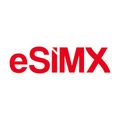Simfinity Telco LLC - propose des solutions eSIM abordables et flexibles pour les voyageurs internationaux, permettant une connectivité transparente dans plus de 190 pays sans avoir besoin de cartes SIM physiques. Avec une activation instantanée, aucun frais d'itinérance et des forfaits de données adaptés aux voyageurs, Simfinity garantit que rester connecté dans le monde entier est simple et sans tracas.

Simfinity Telco LLC - propose des solutions eSIM abordables et flexibles pour les voyageurs internationaux, permettant une connectivité transparente dans plus de 190 pays sans avoir besoin de cartes SIM physiques. Avec une activation instantanée, aucun frais d'itinérance et des forfaits de données adaptés aux voyageurs, Simfinity garantit que rester connecté dans le monde entier est simple et sans tracas.
Forfaits de données eSIM Simfinity pour la France
Questions fréquemment posées
Simfinity propose-t-il une eSIM avec données illimitées pour la France?
Simfinity ne propose pas de plan eSIM de données illimitées pour la France. Les options disponibles offrent des allocations de données fixes. Par exemple, le Euro Zone Pass délivre 50 GB de données pour un prix unique, tandis que le Global eSIM propose 25 GB. Ces forfaits fixes peuvent être plus rentables pour la plupart des voyageurs, sauf si un utilisateur nécessite une consommation de données très élevée.
Est-ce que Simfinity propose une eSIM France avec numéro de téléphone et SMS?
Simfinity ne propose pas d’eSIM France incluant un numéro de téléphone local ou la capacité d’envoyer des SMS. Le prestataire ne propose que des forfaits eSIM uniquement données pour France. Les voyageurs peuvent toujours utiliser des applications VoIP telles que WhatsApp, Telegram et iMessage via la connexion de données pour les appels et les messages.
Combien de forfaits de données Simfinity propose-t-il pour la France ?
Simfinity propose un total de 34 forfaits data disponibles pour la France lorsque l’on compte l’ensemble des options mono‑pays et mult‑pays. Sept d’entre eux sont dédiés à un forfait mono‑pays offrant un volume de données fixe exclusivement pour une utilisation en France. De plus, 27 forfaits mult‑pays intègrent la France dans une zone de couverture plus large, permettant d’utiliser la même allocation de données sur plusieurs destinations.
Le prix des forfaits varie de 1, 80 $ à 158, 00 $, tandis que les plafonds de données passent de 100 Mo à 50 Go. Certains forfaits incluent aussi l’option de tethering, permettant au flux de données du dispositif d’être partagé avec d’autres appareils. La validité des forfaits peut être à court terme sans date d’expiration ou à long terme, s’étendant jusqu’à 180 jours.
Résumé avec Gen AI. Dernière mise à jour:




